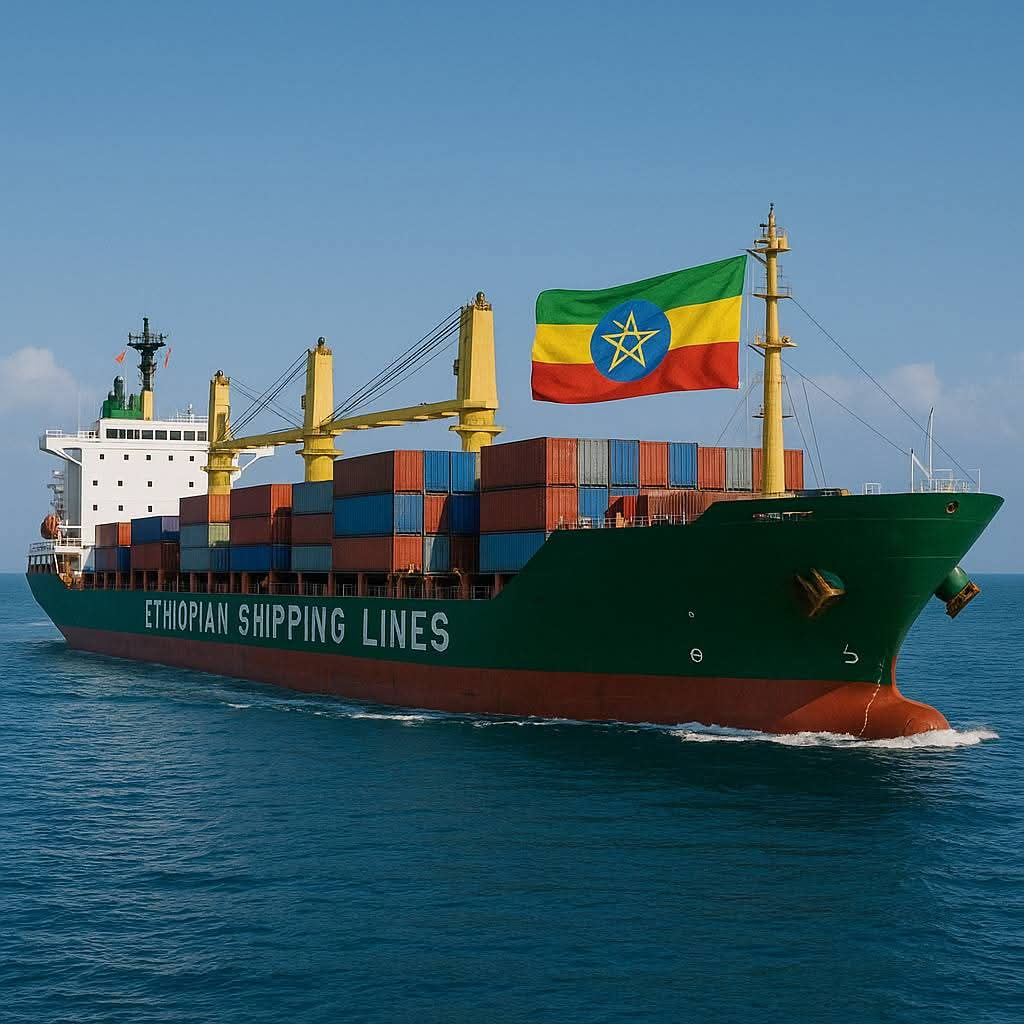Mekelle፡Telaviv, Nairobi, Pretoria, London, (Tigray Herald).
By Tesema Nadow
“The Red Sea Claim is Not a Closed File”: Ethiopia’s Rightful Quest for Maritime Access
W/ro Keria Ibrahim, Former Speaker of the House of Federation
As Africa’s second-most populous nation, Ethiopia’s landlocked status is not merely an inconvenience it is a profound geopolitical injustice. With over 130 million people, a booming economy, and rising strategic relevance in the Horn of Africa, Ethiopia’s lack of sovereign access to the Red Sea remains one of the most significant regional anomalies.
In a powerful statement that rekindles this national discourse, W/ro Keria Ibrahim, the former Speaker of Ethiopia’s House of Federation, boldly declared:
“Ethiopia’s claim to a Red Sea outlet is not a file that can be closed until a just solution is found.”
This is not saber-rattling. It is not a war cry. It is a call for diplomatic courage and regional understanding one rooted in law, fairness, and the enduring dignity of a people whose maritime access was lost not by natural fate, but by historical mistake.
A Just and Legal Demand
W/ro Keria’s remarks are not isolated; they echo growing sentiments among scholars, diplomats, and citizens alike. Ethiopia’s demand is not driven by conquest, but by economic necessity and demographic logic.
“Even if this generation doesn’t resolve it, it will remain a national task for the next,” she added, underscoring the generational weight of the issue.

The claim is anchored in geography, history, and economic justice. While smaller nations with lesser populations enjoy extensive coastlines, Ethiopia a historical powerhouse of the continent remains dependent on the ports of others for 95% of its imports and exports.
The result is structural vulnerability: inflated logistics costs, strategic exposure, and bottlenecks that stunt both domestic growth and regional integration.
Diplomacy, Not Domination
Critics of Ethiopia’s position often rush to draw false parallels to territorial aggression or maritime imperialism. Yet, W/ro Keria is clear: peaceful negotiation is the only path forward.
“Ethiopia must pursue all peaceful means,” she affirmed. “Diplomacy is not only more effective than force it benefits everyone.”
Her statement presents a roadmap of multilateral dialogue, built on the belief that the Horn of Africa should operate as a mutually beneficial corridor, not a zero-sum battlefield. This vision is neither romantic nor naïve. It is pragmatic and overdue.
Redressing Historical Wrongs
The loss of Ethiopia’s coastline was not the result of a democratic referendum or uncontested decolonization. It was the product of political compromise, Cold War interference, and unresolved regional grievances. As W/ro Keria put it, this was not an “accident of geography,” but a historical error with enduring consequences.
The way forward must involve recognition, not recrimination. It must acknowledge Ethiopia’s fair and lawful interest in securing a maritime outlet not to undermine neighbors, but to uplift the region through trade, integration, and infrastructure.
Ethiopia’s peaceful return to the Red Sea would not weaken regional states. It would enhance collective prosperity, attract investment, and stabilize supply chains. A rising Ethiopia, connected to the sea, is a boon to Djibouti, Eritrea, Sudan, and beyond.
The Region Can Rise Together
At a time when Africa is being eyed as the final frontier of global investment, stability, and resource diplomacy, the Horn cannot afford internal division. The absence of maritime access is not just an Ethiopian problem it is a barrier to regional peace, mobility, and shared progress.

“Let the region not enter into friction over this,” W/ro Keria warned, urging Horn states to embrace pragmatism over paranoia.
Her message is clear: this is not a nationalistic whim. It is a call to anchor regional peace and development in justice. Ethiopia’s claim, if resolved through mutual understanding, could unlock the door to a cooperative Horn bound by logistics, commerce, and shared security.
Time to Reopen the File
In global diplomacy, some files are closed quietly. Others gather dust in archives. But some like Ethiopia’s Red Sea claim refuse to stay shut, because the injustice they represent is too great, too consequential.
As W/ro Keria puts it, “This is not a file that can be shelved.” It is a live matter. And until the region sits at the table with courage and imagination, it will remain an open chapter in the history of the Horn.
The time to resolve it not through force, but through foresight is now.
Translated from Amharic to English,which was published in Ethiopian News Agency.



